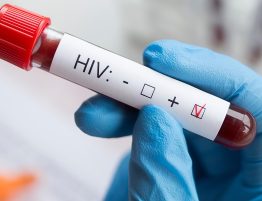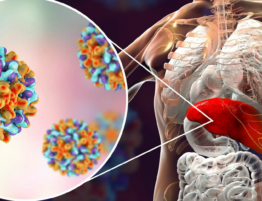
Measlesis an acute infectious disease caused by the measles virus.
The disease occurs with a characteristic fever, damage to the epithelium of the upper respiratory tract, mucous membranes of the eyes and skin. Before the invention of vaccines, measles was one of the leading causes of childhood death, which is why the disease was called the “childhood plague.”
How is the measles virus transmitted?
Transmission occurs primarily through airborne droplets from coughing and sneezing, personal contact, or direct contact with infected nasopharyngeal secretions. Unvaccinated young children (under 5 years of age) have the highest risk of measles and the highest risk of complications; Older children tolerate the disease more easily. One person with measles can infect 12 to 18 unvaccinated or previously uninfected people.
The duration of the incubation period is 9-11 days, and a person becomes dangerous to others (infectious) 2-3 days before the characteristic rash appears.
What are the manifestations of measles?
The first symptom of measles is a significant increase in temperature approximately 10-12 days after infection. The duration of the febrile period is 4-7 days. Then a runny nose, cough, red eyes and watery eyes (conjunctivitis) appear – and at this stage it is difficult to distinguish measles from a regular ARVI. During this period of the disease, a characteristic sign of measles may be small whitish rashes on the inner surface of the cheeks and lips.
A few days later, a characteristic maculopapular rash appears, first on the face and upper neck. After about 3 days, the rash spreads throughout the body and eventually appears on the arms and legs. The rash persists for 5-6 days and gradually disappears. From the 5th day of the rash, the patient is considered non-infectious.
The course of measles is generally favorable; after the illness, stable lifelong immunity is formed. However, the risk of complications is quite high, especially in young children and adults over 20 years of age.
What are the complications of measles?
With measles, a variety of complications are possible associated with the functioning of various organs and systems of the human body – damage to the central nervous system (encephalitis and meningitis), the respiratory system (primary measles and secondary bacterial pneumonia), the gastrointestinal tract (severe diarrhea and associated dehydration) and etc.
In addition, the measles virus suppresses the activity of the immune system with the formation of secondary immunodeficiency. As a result, severe secondary bacterial complications may develop, mainly in the respiratory system.
Women infected during pregnancy are at particular risk of developing severe complications. In this case, pregnancy may end in spontaneous abortion or premature birth.
Vaccination is the best protection!
There are no specific treatments for measles, but the disease can be prevented through vaccination as the safest and most effective method of protection.
Vaccination has been used to combat measles for more than 50 years. Vaccination with live measles vaccine began in the countries of the European region in 1967. In 1971, a combined (trivalent) vaccine against measles, mumps and rubella was created, which began to be used in our country in 1996.
Measles vaccines are highly effective. After administering one dose of a vaccine containing a measles component, long-term immune protection of the body is formed in more than 95% of those vaccinated; after the administration of the second dose, the effectiveness reaches almost 100%. Thus, two doses of the vaccine are required to provide long-lasting protection.
In the Republic of Belarus, vaccination against measles, mumps and rubella is carried out in accordance with the National Calendar of Preventive Vaccinations of the Republic of Belarus, established by Decree of the Ministry of Health of the Republic of Belarus dated May 17, 2018 No. 42 “On Preventive Vaccinations”, and consists of two preventive vaccinations at the age of 12 months and 6 months. years.
Currently, immunization against measles, mumps and rubella in the Republic of Belarus is carried out using the combination vaccine “Priorix”, produced by GlaxoSmithKline Biologicals s.a., Belgium.
Experts recommend that all citizens aged 18 and older:
- check your measles vaccination status with your local health care organization;
- get preventive vaccinations against measles if there is no documented information about vaccination against measles, about previous measles, about the results of a serological blood test confirming the presence of protective levels of IgG antibodies to the measles virus, or if there is documented information about only one preventive vaccination against measles
The information was prepared by a medical preventive doctorBabenko A.A. based on materials from open sources on the Internet and the site rcheph.by







